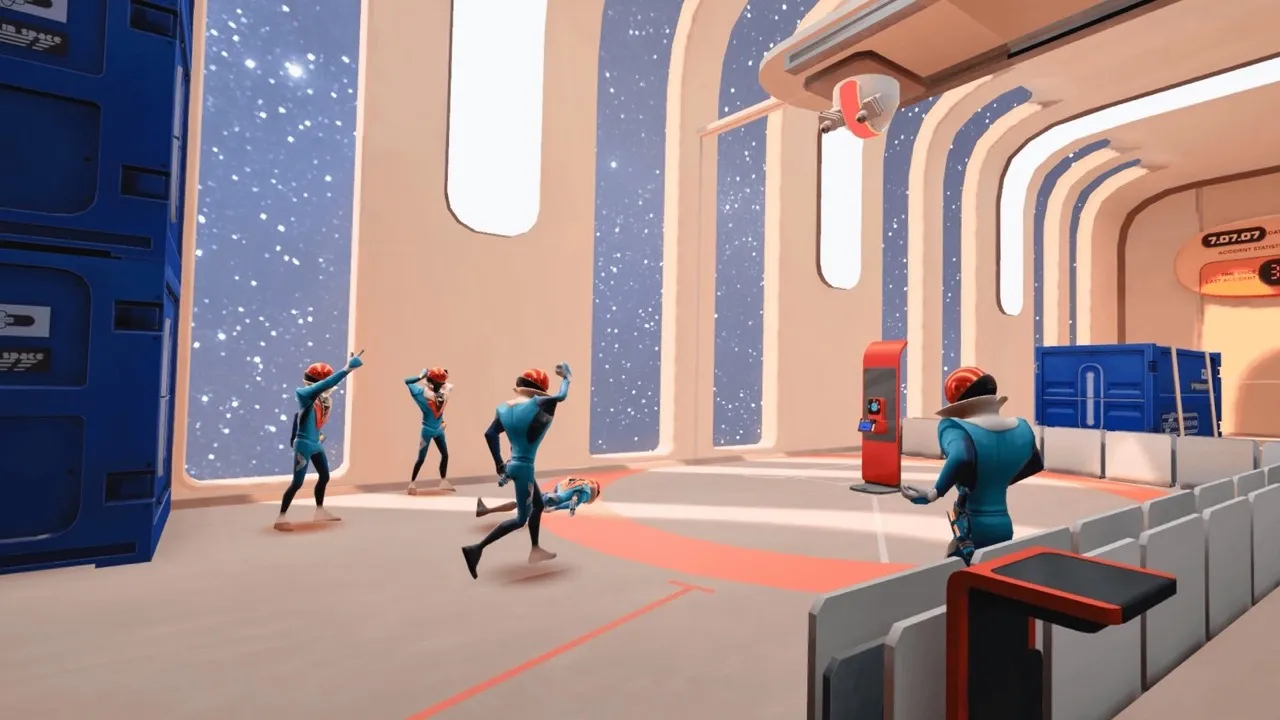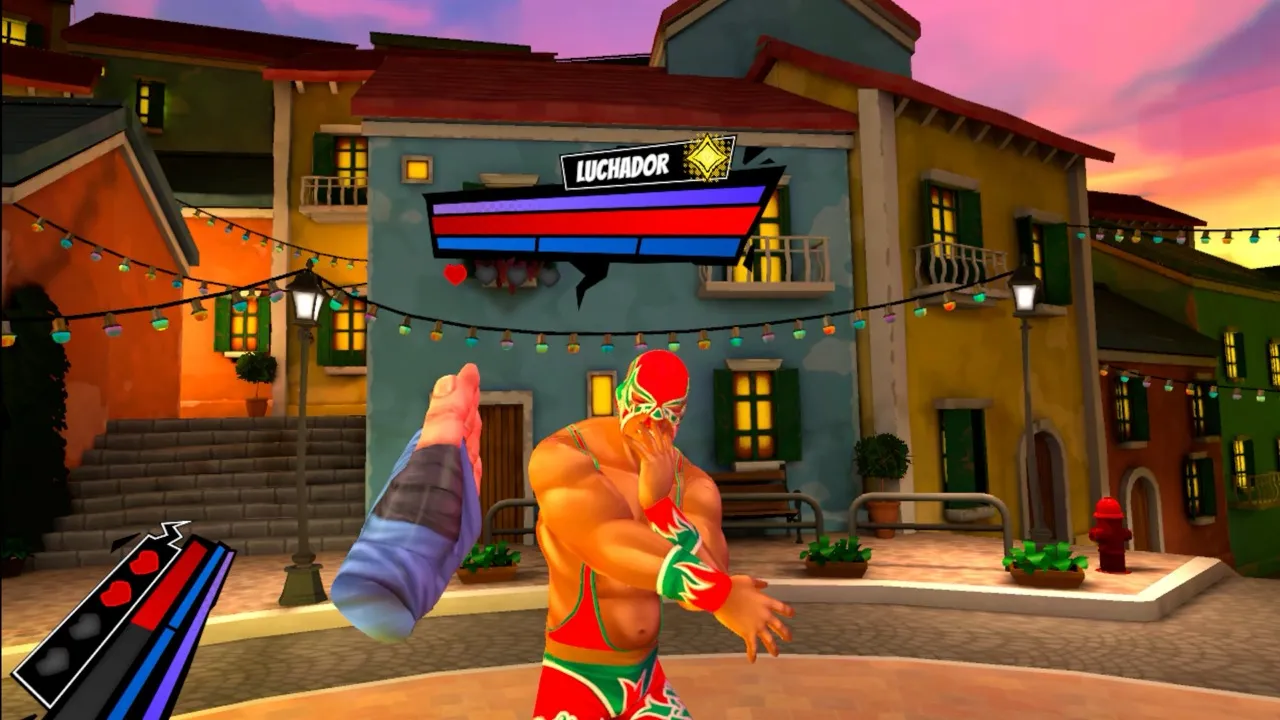UnLoop is a fascinating little puzzler that thrives on a simple but effective idea
UnLoop is one of those VR games that sounds simple when explained but becomes surprisingly clever the moment you step into its looping puzzle rooms. At its core, this is a game about working together with yourself. You play, you die, and your past self repeats every action you just did, leaving your present self free to push the puzzle one step further. That cycle repeats again and again until eventually, you and your army of clones create the perfect chain of actions to unlock the exit and move on.
It is not the first VR game to use this concept, but that does not take away from how fun it feels when you finally figure out a room and watch the whole thing come together like a self-orchestrated Rube Goldberg machine. When UnLoop works as intended, it is a clever, satisfying, and often hilarious puzzler that makes you feel like a time-bending genius.
UnLoop does not lean heavily into narrative, and you will not find long cutscenes or an elaborate backstory waiting for you here. Instead, the focus is entirely on its looping puzzle mechanics. The world around you has a retro futuristic look with a kind of 60s sci-fi vibe. Clean metallic corridors, bold pops of color, and simple geometric shapes make up the rooms you are trying to solve.
There are no characters talking to you or deep lore to uncover. This is a game about doing, not listening. In a way, that works to its advantage. You are thrown directly into puzzle after puzzle without distractions, and the stripped down presentation allows you to focus entirely on solving the challenges. Still, I sometimes wished for a bit more atmosphere or narrative framing to tie the rooms together. Even just a hint of why you are looping and solving these strange mechanical obstacles could have added more context to the experience.
Watch this TikTok video
The heart of UnLoop lies in its gameplay loop. The rules are simple. Every time you die or reset, your past self reappears and performs every action you did previously, while you gain control of a new clone to continue the sequence. Whatever you did before, whether it was walking down a hallway, picking up an item, pressing a button, or even tossing something across a gap, will repeat automatically.
This means your past actions set the stage for your present ones. A typical puzzle might ask you to get through multiple locked doors. In your first life, you grab a keycard and swipe it to unlock the first door. Before resetting, you drop or toss the keycard further into the level. On your second life, your clone repeats the first action, unlocking the door again, while you retrieve the keycard to open the next door. On the third life, both clones do their part, leaving you free to sprint straight through.
This system leads to some really creative problem solving. You are constantly thinking ahead, planning where you should leave items, and deciding which actions you want to record for future versions of yourself. When everything clicks, the feeling is incredible. Watching your clones line up like a perfectly rehearsed performance and seeing the path to the exit open up is always satisfying.
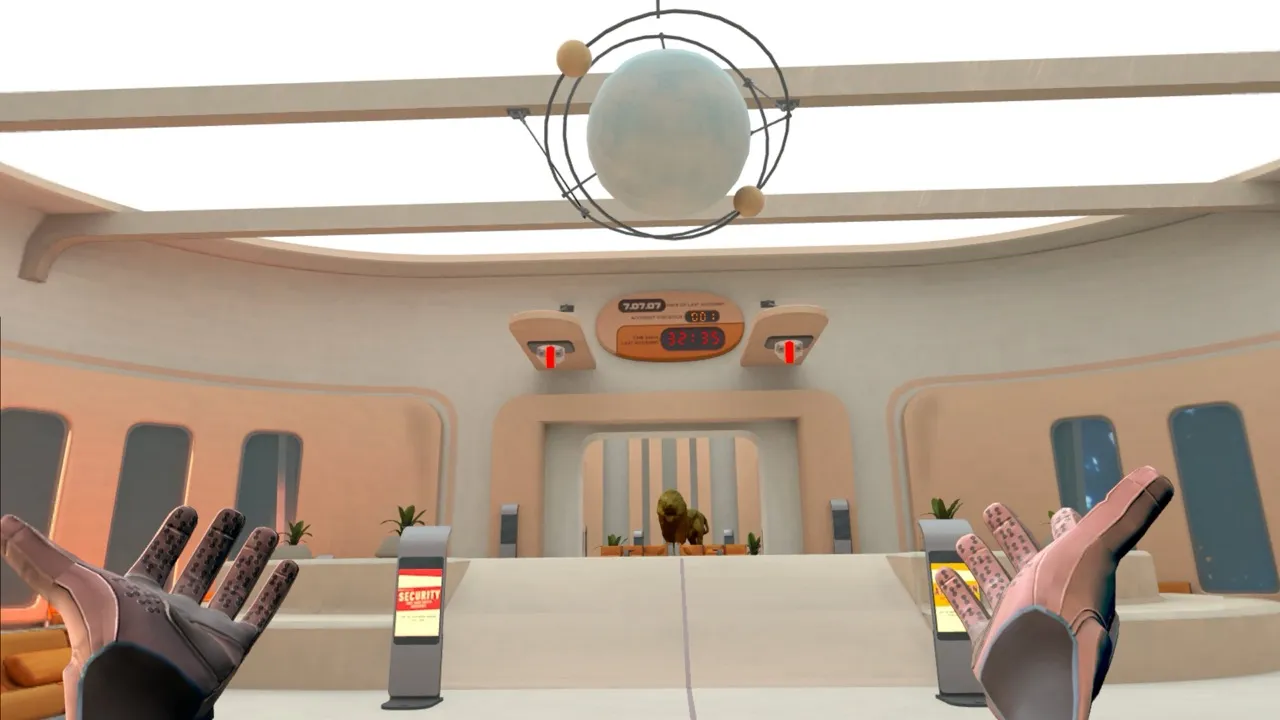
The best part of UnLoop is that moment of realization when the solution dawns on you. Sometimes it takes a few failed attempts, sometimes you get stuck wondering how to juggle objects between lives, but eventually, the light bulb goes off. You know exactly what to do, you set the plan in motion, and then you get that rewarding rush as the puzzle resolves exactly how you imagined.
It is the kind of game that makes you mutter “ohhh” out loud when you finally understand the trick of a room. That sense of discovery and mastery is what keeps you moving forward through each puzzle. Even when the mechanics repeat, the creativity of how you can combine your past and present actions keeps things engaging.
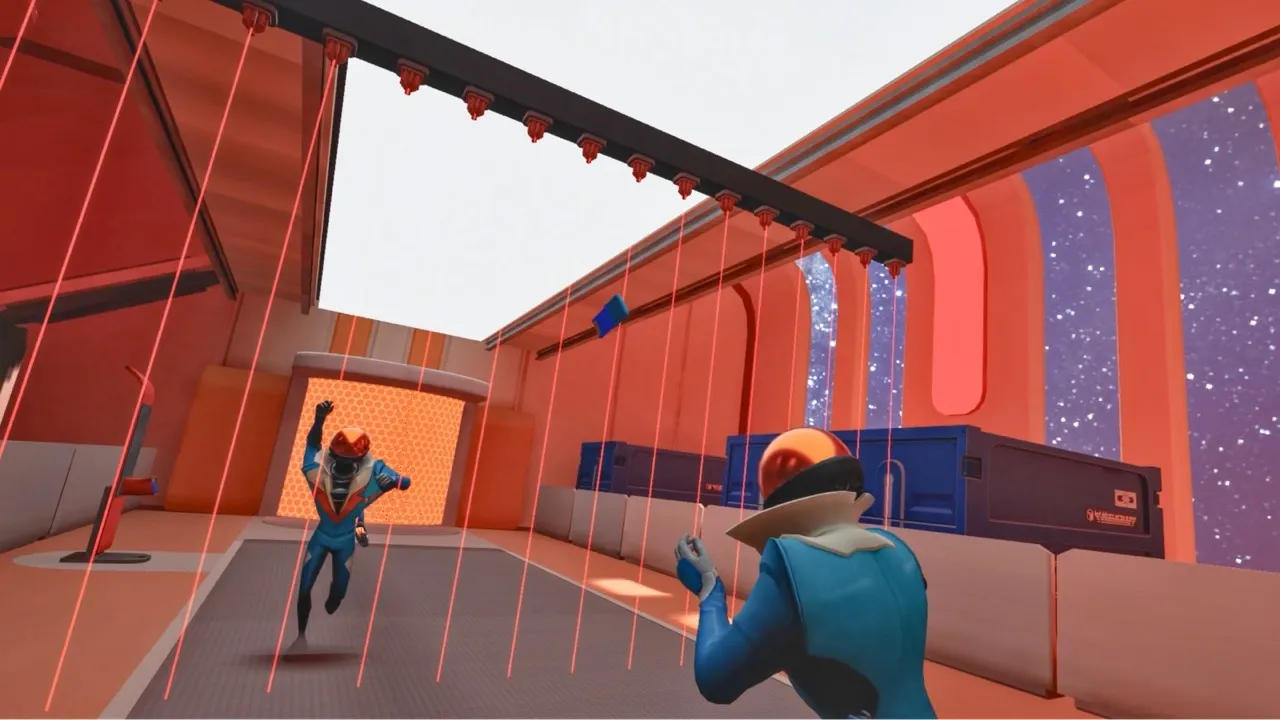
As clever as the design is, UnLoop is not without its frustrations. The biggest issue comes from how clones behave. While they are supposed to flawlessly repeat your past actions, they sometimes get confused by the environment. Waist high doors in particular cause trouble, with clones getting stuck or failing to move through spaces that you clearly passed through before.
The handling of objects can also be messy. Passing items between your past and present selves rarely works as intended. In theory, you should be able to place something down for your future self to pick up, but in practice, it is unreliable. Most of the time you end up throwing objects instead, and that leads to another problem. The physics for thrown items are inconsistent, often bouncing unpredictably or landing in unreachable places. This can ruin an otherwise solid attempt and force you to reset the whole room, which quickly gets frustrating.
Interacting with objects in general lacks polish. Picking things up can be finicky, and since there is no crouch button, grabbing items from the ground is awkward. It breaks the flow of puzzles when you are wrestling with controls instead of thinking through solutions.
There are also ways to outright cheat puzzles, like clipping your hand and held objects through walls to skip sections. Oddly enough, I did not mind these exploits too much. It feels almost like discovering a loophole in the system, and given how strict some rooms can feel, bending the rules can be strangely rewarding.
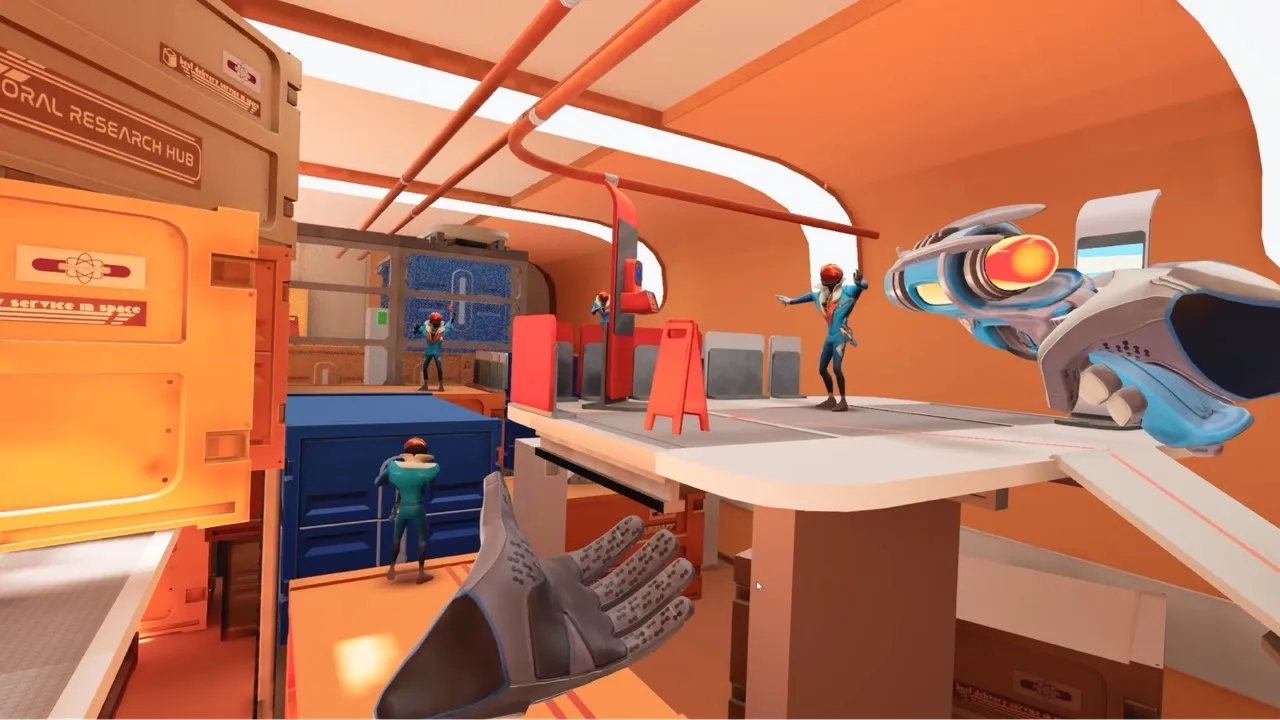
UnLoop offers a generous number of puzzle rooms, each with its own twist on the looping mechanic. Some focus on precise timing, others on careful placement of objects, and a few require you to choreograph multiple clones working in sequence. The variety is enough to keep things fresh throughout your first run.
However, once you have solved a room, there is little reason to return. Unlike some puzzle games that offer multiple solutions, UnLoop’s rooms are usually designed with one clear path to success. Once you know the trick, replaying loses its magic. That limits the long term replay value, but for the first playthrough, the experience is engaging and satisfying.
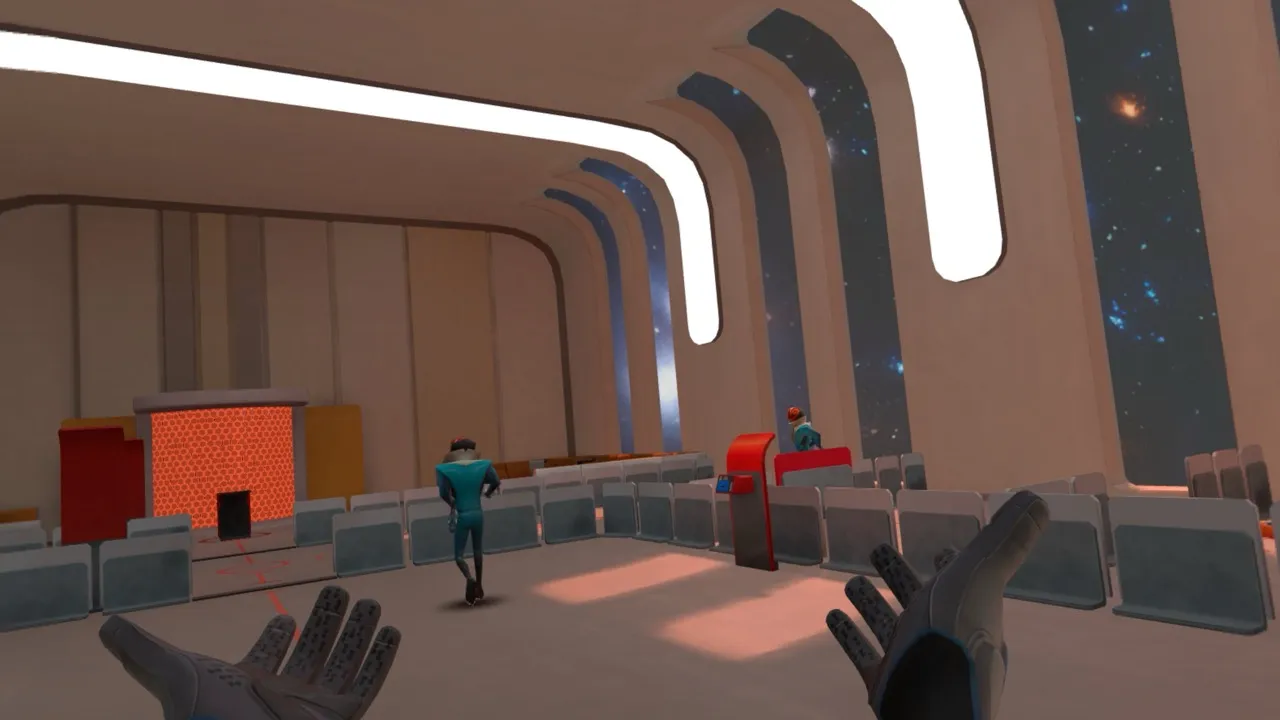
Visually, UnLoop embraces a clean, retro futuristic style. The muted metallic walls, combined with bold color highlights, create a distinct aesthetic that feels inspired by old sci-fi films and design trends of the 1960s. Personally, I enjoy that look, and it fits well with the abstract nature of the puzzles.
That said, the environments could benefit from more detail. The rooms often feel empty or plain, which sometimes undercuts the sense of immersion. More environmental storytelling or even just decorative elements could have made the world feel richer and more alive.
On Quest 3, the performance is smooth and responsive. The visuals are not pushing the hardware to its limits, but they do the job. The sound design, however, could use more punch. Given that so much of the game revolves around repeating actions, it would have been nice if audio cues reinforced the sense of impact. For example, stronger feedback when swiping a keycard, opening a door, or throwing an object would have made interactions feel more tangible.
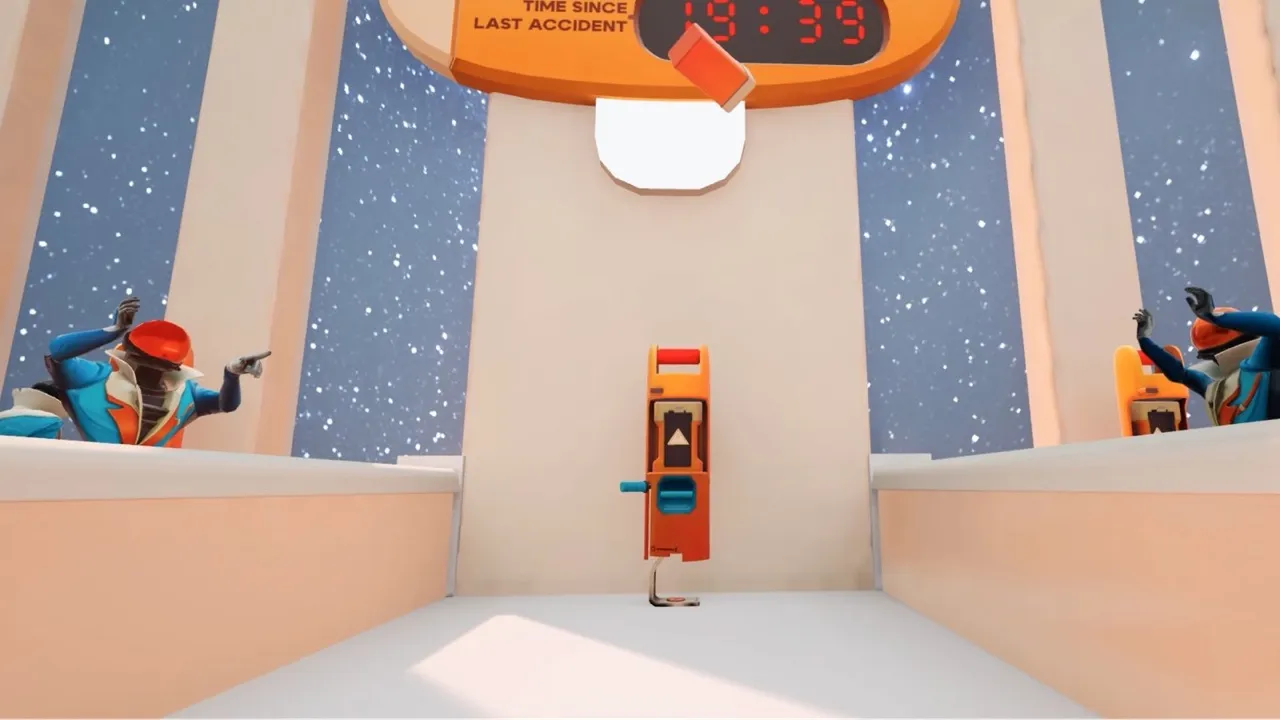
UnLoop is a fascinating little puzzler that thrives on a simple but effective idea. Using clones of yourself to solve puzzles feels fresh and fun, and when it works, it delivers some genuinely clever moments. The satisfaction of orchestrating your past actions and watching them unfold exactly as planned never gets old.
Still, the game has limitations. Clunky object handling, inconsistent physics, and clone confusion can all get in the way of the experience. The lack of replay value also means that once you solve the rooms, there is little incentive to come back.
Even so, if you enjoy puzzle games that make you think differently, UnLoop is well worth your time. It may not be perfect, but it is already a solid experience, and with some refinement, it could become something truly special. For now, it delivers enough creativity and satisfaction to keep puzzle fans entertained, and on the Quest 3, it is a neat reminder of how VR can make even the simplest ideas feel novel again.
The game was reviewed on a Quest 3 via a promo copy provided by the developer. UnLoop is available on Meta Quest, Pico and coming soon to PCVR.
